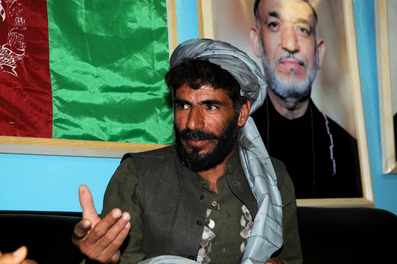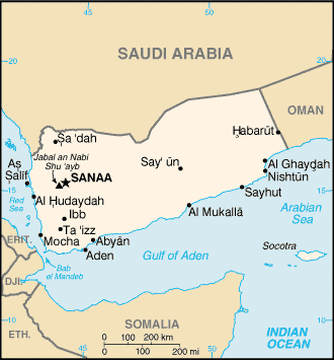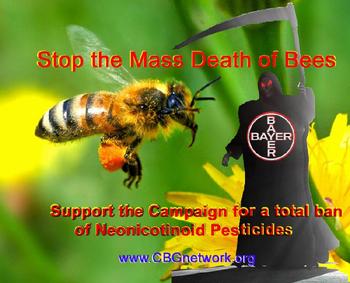 Former Taliban commander joins Afghan government as part of amnesty program Former Taliban commander joins Afghan government as part of amnesty program After a fierce three-day battle, 110 police in a major police base in Badakshan surrendered to Taliban attackers. This is the largest surrender of Afghan forces to the Taliban in years. Police officials blamed the surrender on the government which failed to send sufficient reinforcements to fend off the Taliban. The surrender was not without conditions. The police agreed to surrender and be disarmed but were then all released leaving the base under control of the Taliban. While the main strength of the Taliban is in the south, the Taliban have lately extended their influence in the north and now control territory there. The area where the base is located is isolated and has been cut off from the rest of Afghanistan by heavy rains that made it difficult for the government to send in reinforcements quickly. Much of the Taliban "Spring Offensive" focused on the north. However, the Taliban have also been active in areas in the south where they have always been strong. In June they raided a series of checkpoints in Helmand in the south killing at least 20 police officers. Both US and Afghan officials estimated in June that 330 Afghan soldiers and police were killed or wounded each week since the Spring Offensive began. This is a 70 percent increase for the first 15 weeks of conflict compared to last year.
As fighting goes on, there are also ongoing peace talks between the Taliban and the Afghan government hosted by Pakistan. The second round of talks is scheduled for July 31. There had been some speculation that the next venue would be in China, or Qatar where the Taliban have a political office. The first round of talks was on July 7th in Pakistan. NEWTEKWORLDNEWS Afghanistan update: Wednesday BBC news are reporting the death of the leader of the Afghan Taliban, Mullah Mohammed Omar.
0 Comments
An earlier ceasefire announced by the UN failed when the Saudis claimed they were not bound by it and began bombing again just hours after the cease fire was to take effect. It remains to be seen if the Houthis and their supporters honour this declaration.
The months of bombing and clashes has created a humanitarian disaster for Yemenis. Many have tried to flee battle zones or the country. Others are facing diminishing supplies of vital necessities and an overburdened medical system. More than 3,200 have been killed since the fighting began. An estimated 13 million are in need of food and other aid. The Saudi bombing strikes sometimes target residential areas. In a recent attack in the central city of Taiz medical sources report that 80 people were killed and another 150 other wounded. Al Qaeda in the Arab Peninsula(AQAP) has taken advantage of the conflict and chaos to control more territory, often with support from local Sunni tribes resisting the Houthi advance. The Islamic State has also shown its presence in Yemen by devastating suicide attacks in the capital and elsewhere.
As with any intervention by science meant to aid man produce food more efficiently there are often negative results on the environment.
Large corporations dominate in advanced nations' agricultural system and their profits and interest come into play. This in turn tends to corrupt or at the very least slant scientific studies in the hope of supporting the positions of the corporation. However, there is often bias on the other side as well since environmentalism has become for some a cause that is to be pushed forward to save the planet and the environment. Often environmentalists believe that they know what is the case, namely that their opposition is manipulating the facts and is concerned only with profits and not the environment even though in many cases the facts may be exceedingly complex and open to dispute. However, in the case of the neonicotinoids evidence is accumulating to show that they produce enough damage to be severely limited in their application and perhaps even banned. Raine discovered that bees treated with neonicotinoids showed the neurological effects of the toxins in their behavior: "When the neonicotinoid-treated bees go out of the colony for the first time to look for flowers, something about their exposure to that pesticide means that they’re less able to collect as much pollen as the bees that are untreated. And that impact only gets worse over time, because the untreated bees improve their performance and their ability.” The consequences of this lack of performance is smaller colonies with fewer queens and fewer colonies. Dr. Raine notes that pollinators, including both honeybees and wild pollinators are in decline around the world. However, as others have pointed out there are a number of different causes of this. Pierre Petelle, vice-president of chemistry at CropLife Canada claims that the "neonics" as he calls them are not one of the causes. However, even he admits that there have been some problems. In 2012 dust raised from their application did drift onto some bee colonies killing the bees. He claims that farmers and manufacturers are working to change the way that the pesticides are applied to avoid this happening again. There are increases in the number of bee colony collapses in many different countries. While neonics are likely one cause of this phenomenon there are numerous other factors. Often the factors work together to exacerbate the problem. Among the causes of colony collapse(CCD) are the varroa mite that spreads a virus: "According to a 2007 article, the mite Varroa destructor remains the world's most destructive honey bee killer, due in part to the viruses it carries including deformed wing virus and acute bee paralysis virus, which have both been implicated in CCD.[103][105] Affliction with Varroa mites also tends to weaken the immune system of the bees. Dr. Enesto Guzman, an entomological researcher at the University of Guelph in Canada, studied 413 Ontario bee colonies in 2007–08. About 27% of hives did not survive the winter, and the Varroa mite was identified as the cause in 85% of the cases.[106] As such, Varroa mites have been considered as a possible cause of CCD, though not all dying colonies contain these mites.[107] There are debates about the effects of neonics on birds as well. Christy Morrisey, from the University of Saskatchewan in Saskatoon found just last year that 90 percent of prairie potholes had small amounts of neonics. This means that the chemicals stayed in the soil and washed into the water. Morrissey said: "Insecticides or pesticides in general are not supposed to be on the market if they persist [in the environment. We do not want chemicals that are designed to kill lasting in the environment for weeks, months or years. …You want pesticides to be applied, do their job, kill the pest and then be gone." Dr. Morrisey is now studying how the neonics in the water may be affecting the aquatic insects and also the health of tree swallows nearby. He said: "We do not want chemicals that are designed to kill lasting in the environment for weeks, months or years." A Dutch study published this summer showed there were annual declines in insect-eating birds in areas that had higher surface-water concentrations of a popular type of neonic. Pettell of CropLife claims that the concentrations of neonics that Morrissey finds are too low to have any effect on aquatic insects. Industry studies on the water flea show that there is no danger to aquatic insects or wildlife. Pettell may be correct in his remarks about Morrissey's findings but the industry studies are themselves an example of slanted science. The water flea is according to Morrissey compared to other insects tested on average about 1,000 times less sensitive to neonics. She also complained that compared to the aquatic insects that birds like to eat it is between 10,000 and 100,000 less sensitive. If Morrissey is correct it is hardly surprising that the water flea is not hurt by the neonics in the water. Even if the pesticides are not banned at the very least their use should be restricted. As seed coatings they are used as a prophylactic even in fields where there are no insect infestations. In Canada all canola and corn seeds are coated and they are used in seeds of some other crops as well such as soybeans. A recent report of the Task Force on Systemic Pesticides analyzes 800 different studies and concluded that pesticides including neonics are having widespread effects on ecosystems far beyond killing crop pests. The scientists involved recommend that there should be a plan for a global phasing out of the chemicals or at the very least a plan that would see farmers use pesticides only when their crops actually are threatened by insect pests.
Ampatuan ruled as governor of Maguindanao for a decade with his own private militia which was tolerated by the Philippine government since he used it to suppress Muslim separatists who are active in the province.
While Arroyo's successor President Benigno Aquino III has promised year after year to deliver justice, no one has been convicted well over five years after the slaughter. Aquino's term ends next year. Prosecutor Harry Roque, who represents families of several victims complained: "We decry the fact that the delay in the system has resulted in this - that both accused and the victims were deprived of a judicial declaration of whether or not he is guilty,It should never happen again that something as gruesome as this takes as long as it has taken [to resolve]." As more than five years have passed with no convictions there may never be justice for families of the victims. The Ampatuan clan is still powerful in the area. Additional Source: http://www.aljazeera.com/indepth/features/2014/11/no-justice-years-after-philippines-massacre-201411235113180709.html
Stratoulis' job was given to Pavlos Chaikalis, a former comic actor, from the right-wing partner of Syriza, the Independent Greeks. Deputy Finance Minister Nadia Valvani resigned before the vote. New ministers are expected to be sworn in this Saturday. The main economic ministries remain as they were, with Euclid Tsakalotos remaining as finance minister and George Stathakis staying as economy minister. Yanis Varoufakis the former finance minister also voted against the bailout bill but he had already resigned his position before the last negotiations.
Tsipras has said there will be no elections immediately and not before a bailout deal is agreed upon. Nikos Voutsis, the Interior Minister, said that there could be elections in September or October. The reform bill passed with 229 votes in the 300-seat chamber in the early hours of Thursday morning. The bill includes pension cuts, VAT hikes, reform of collective bargaining, and stringent limits on public spending erasing all of Syriza's "red lines". The bill represented the negation of everything that Syriza had campaigned and fought for. The IMF has criticized the bailout as creating a situation where Greek debt levels will be unsustainable. The IMF claims that severe debt restructuring will be required to make the bailout workable. Additional Sources: http://m.todayonline.com/business/german-lawmakers-back-greek-bailout-despite-rebellion-tsipras-sacks-dissenters http://www.irishtimes.com/news/world/europe/tsipras-sacks-party-rebels-in-greek-cabinet-reshuffle-1.2289114 http://www.telesurtv.net/english/news/Greeces-Tsipras-Culls-Rebel-Ministers-20150717-0019.html |
Like this writer's work please donate:
Ken Hanly
Ken is a retired philosophy professor living in the boondocks of Manitoba, Canada, with his Filipina wife. He enjoys reading the news and writing articles. Politically Ken is on the far left of the political spectrum on many issues.
Archives
November 2016
Categories
All
|




 RSS Feed
RSS Feed

